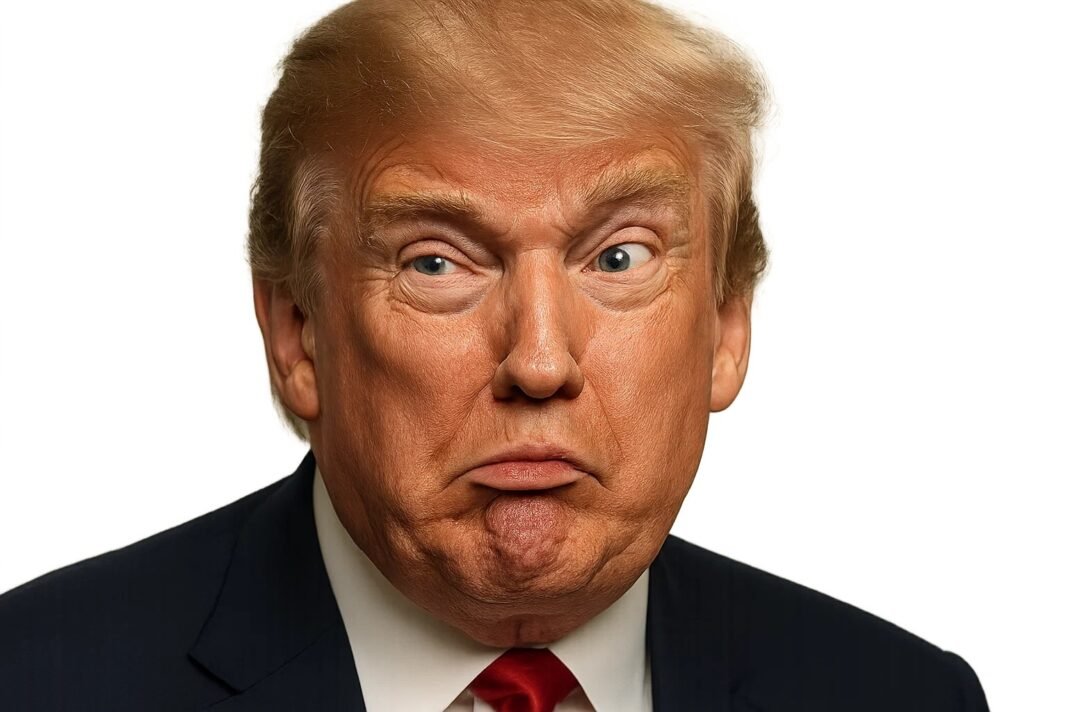RBI Governor Counters Trump’s ‘Dead Economy’ Claim with Growth Data
Reserve Bank of India (RBI) Governor Sanjay Malhotra has strongly countered US President Donald Trump’s recent remarks referring to India as a “dead economy,” asserting that India is not only growing steadily but is also making a larger contribution to global growth than the United States.
Speaking at a press briefing at the RBI headquarters in New Delhi on Wednesday, Malhotra said, “We are contributing about 18% to global growth, which is more than the US, where the contribution is expected to be around 11%.” He added, “India is doing very well and will continue to improve further.”
The statement came just days after Trump’s provocative comments and escalating trade threats, including proposed increases in tariffs on Indian imports. Despite rising global trade tensions, Malhotra painted a confident picture of India’s economic trajectory and long-term resilience.
India’s Growth Outlook Remains Strong
According to the RBI, the Indian economy is projected to grow at 6.5% in FY25, significantly outpacing the International Monetary Fund’s global growth forecast of around 3% for the same period. Malhotra noted that India has recorded an average annual growth rate of 7.8% in the past, and the country should aim for an even higher aspirational growth target in the coming years.
India’s economic momentum is being supported by strong domestic demand, improving agricultural conditions, and a recovery in rural consumption, aided by the forecast of above-average monsoon rains. Malhotra emphasized that these factors would play a crucial role in sustaining the country’s economic performance.
RBI Holds Repo Rate Steady Amid Global Uncertainty
In its latest monetary policy review, the RBI’s six-member Monetary Policy Committee (MPC) unanimously voted to keep the key repo rate unchanged at 5.50%. This follows a surprise 50-basis-point cut in June—the third such rate cut since February—as the central bank aims to balance growth with inflationary pressures and geopolitical risks.
The decision to maintain the rate came amid mounting concerns over Trump’s renewed trade rhetoric. The US President recently announced plans to “substantially” raise tariffs on Indian goods, with an increase from 10% to 25% set to take effect on Thursday. He also warned of additional penalties due to India’s continued imports of Russian oil and defense equipment.
Minimal Tariff Impact Anticipated, Says Malhotra
When asked about the potential impact of US tariffs on India’s economy, Malhotra expressed confidence that the fallout would be limited unless retaliatory actions escalate the situation.
“We don’t see a major impact unless there is a retaliatory tariff,” he said. “We are hopeful that we will reach an amicable resolution. Global trade challenges remain, but the Indian economy holds bright prospects in the changing world order.”
Malhotra added that India has taken “decisive and forward-looking measures” to support sustained growth amid external uncertainties.
Markets React to Policy Status Quo
Despite the RBI’s reassuring tone, Indian equity markets witnessed a dip in sectors sensitive to interest rates. Shares of auto, realty, and banking companies declined as investors reacted to the central bank’s decision to hold interest rates steady.
On the Bombay Stock Exchange, Bosch dropped 4.85% to ₹38,617.75, Hyundai Motor India fell 1.95% to ₹2,146.15, and HeroMoto Corp slipped 1.31% to ₹4,482.60. Meanwhile, Apollo Tyres and Mahindra & Mahindra recorded declines of 1.07% and 0.83% respectively.
Analysts say that while the RBI’s policy pause signals caution amid geopolitical instability, the broader macroeconomic indicators continue to support investor confidence in India’s medium- to long-term economic prospects.
As global trade headwinds intensify and political rhetoric heats up, India’s central bank remains focused on maintaining economic stability and growth momentum. With a robust domestic market, resilient financial systems, and a forward-looking policy approach, the Indian economy appears well-positioned to navigate the challenges posed by external shocks—including those originating from Washington.








